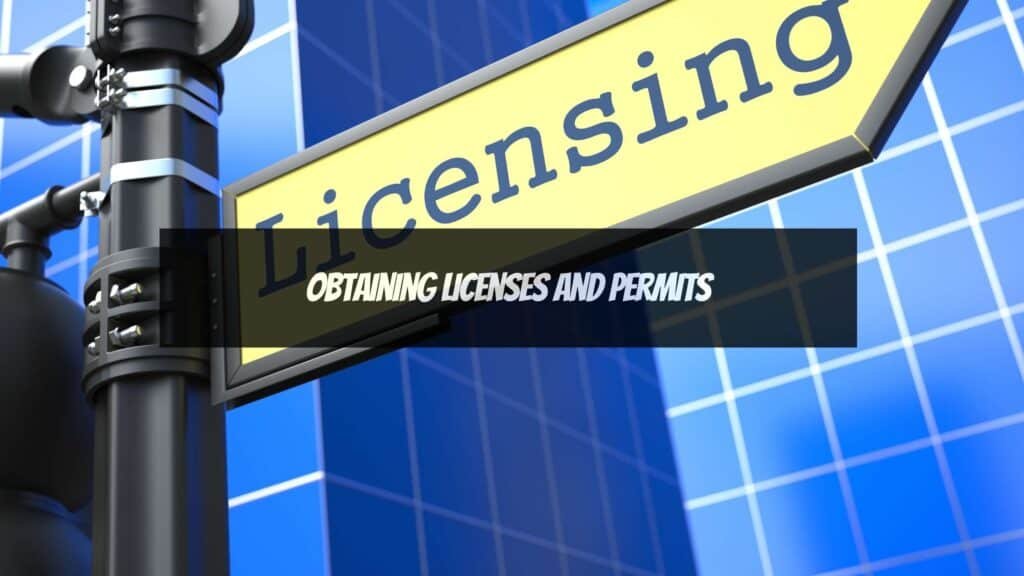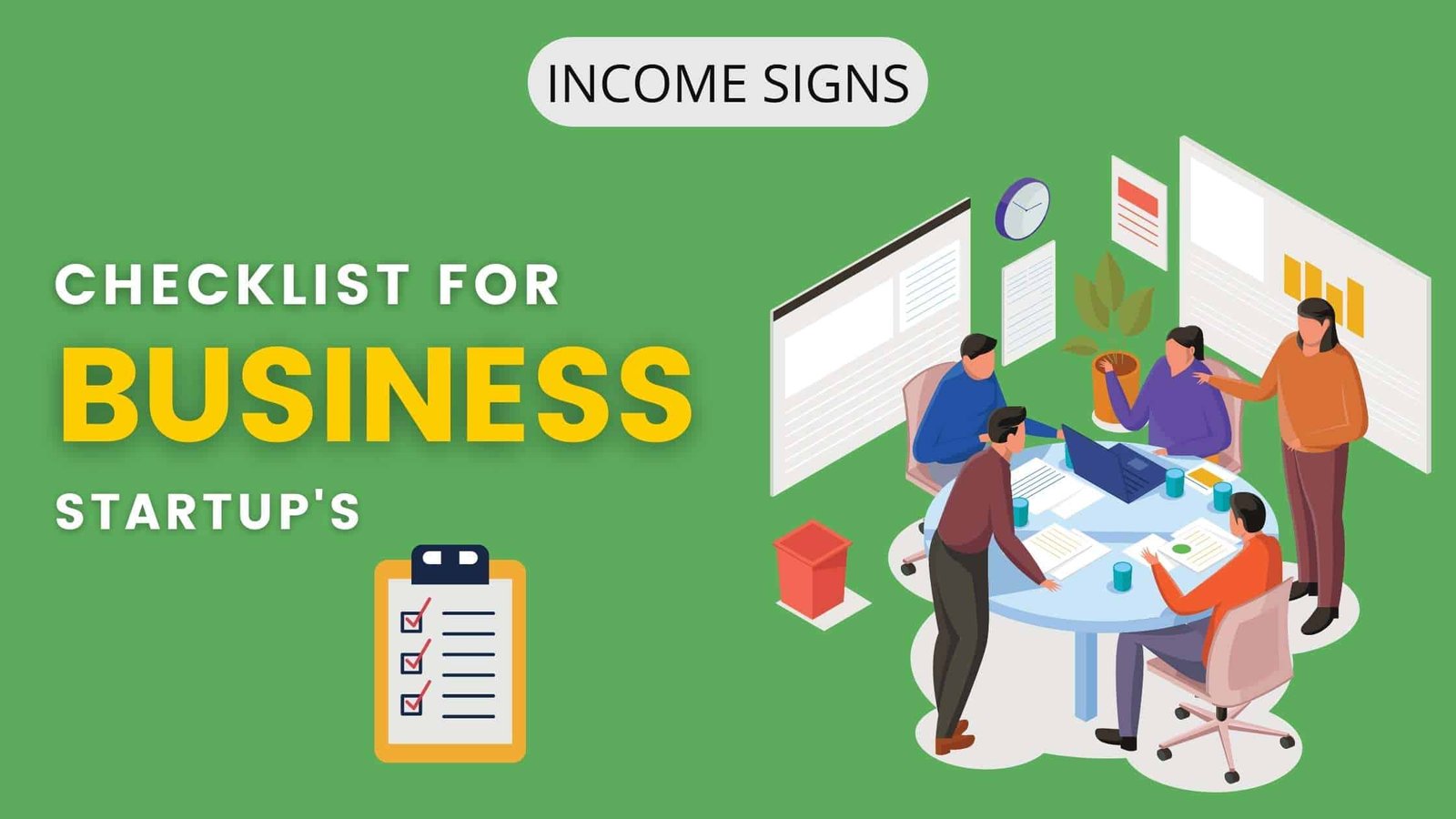Why Business Startup Checklist is important?
When Starting a new business, it is difficult to keep track of all the tasks that need to be completed.
This is where a Business Startup Checklist comes in handy.
It can help you keep track of everything from registering your business name to obtaining licenses and permits.
A Business Startup Checklist can also be helpful in identifying potential problems early on, so that they can be addressed before they become major issues.
Basic Business Startup Checklist
Choose a Business Structure

When you’re starting a business, one of the first decisions you’ll need to make is what legal structure to choose for your company.
The type of business entity you choose will have important implications for your taxes, liability, and ability to attract investors.
Here are the most common business structures to choose from:
Sole Proprietorship
If you’re starting a business on your own, a sole proprietorship is the simplest way to get started.
You’ll be personally liable for your business’s debts and obligations, but you’ll also get to keep all of the profits.
Partnership
A partnership is similar to a sole proprietorship, but it’s owned by two or more people.
Partnerships can be either general partnerships, in which all partners are equally liable, or limited partnerships, in which some partners have limited liability.
Corporation
Corporation is a separate legal entity from its owners, meaning that the owners are not personally liable for the debts and obligations of the corporation.
This can be attractive for businesses that are looking to attract investors, but it also comes with additional paperwork and compliance requirements.
Limited Liability Company (LLC)
A limited liability company (LLC) is a hybrid between a corporation and a partnership.
Like a corporation, an LLC offers its owners limited liability protection.
But like a partnership, an LLC is taxed as a pass-through entity, meaning that the profits and losses of the LLC are “passed through” to the owners and reported on their personal tax returns.
Choosing the right business structure is an important decision that will have long-term implications for your business.
Make sure to consult with an attorney or accountant to help you decide which structure is right for your company.
Register Your Business Name

Starting a business is an exciting and often challenging undertaking.
There are a number of important considerations to keep in mind as you get started, from choosing the right business name to registering your company with the appropriate government agencies.
The following steps can help you ensure that you cover all of the bases as you get your business up and running.
Registering your business name is an important first step.
You’ll want to choose a name that is distinctive and memorable, but that also accurately reflects the products or services you offer.
Once you have settled on a name, you will need to check to see if it’s available to use by searching for it in the Business Registry.
If the name is available, you can register it with the Registry for a small fee.
Once your business name is registered, you’ll be able to start using it on stationery, advertising, and other marketing materials.
If you’re planning on doing business under a different name than your legal one, you may also need to register that as a trading name.
Registering your business name is an important first step in getting your new venture off the ground.
With a little research and planning, you can choose a great name that will help your business succeed.
Obtaining Licenses and Permits

Before you can open your doors to customers, there are a few legalities you need to take care of.
Depending on the type of business you’re operating, you may need to obtain certain licenses and permits from the government.
Failure to do so could result in hefty fines or even the shutdown of your business.
To avoid any complications, it’s important to familiarize yourself with the licensing requirements in your state or municipality.
You can start by contacting your local Chamber of Commerce or Small Business Administration office.
They should be able to point you in the right direction and help you get started on the process.
Once you have all the necessary licenses and permits, you’ll be one step closer to starting your business.
Open a Business Bank Account

Opening a bank account for your company.
This will give you a place to deposit your revenue and write checks for expenses.
To open a business bank account, you’ll need to provide evidence of your business’s legal status, such as articles of incorporation or a fictitious name filing.
You’ll also need to have an Employer Identification Number (EIN).
Once you have all the necessary documentation, you can visit your local bank or credit union to open an account.
Tax Registration

Once you have decided to start a business, there are a number of important steps you need to take to get things up and running.
One of the most important is tax registration.
Depending on the type of business you’re starting, you may need to register with the IRS, your state tax agency, or both.
This process can seem daunting, but there are a few key things to keep in mind.
Be sure to register as soon as possible after starting your business.
This will ensure that you don’t run into any penalties for late registration.
Make sure to keep accurate records of your business income and expenses.
This will make it much easier to file your tax return each year.
Marketing a Business

Marketing a business can be a daunting task, especially for those who are just starting out.
There are a few key marketing strategies that every business should implement in order to get off on the right foot.
It is important to identify the target market for the product or service being offered.
Once the target market has been identified, businesses should develop a branding strategy that will help them to stand out from the competition.
Businesses need to create a marketing plan that outlines how they will reach their target market.
Marketing a Business should track its marketing efforts and make adjustments as needed in order to ensure that they are achieving its desired results.
Promote Your Business

Any new business venture is sure to come with a lot of challenges, and promoting your business is no different.
Getting the word out about your product or service can be difficult, and it’s important to have a plan in place to make sure you’re reaching your target audience.
First thing is to consider what channels you’ll use to promote your business.
Will you advertise online, in print, or on television?
Each has its own strengths and weaknesses, so it’s important to choose the one that makes the most sense for your product or service.
Once you’ve decided on your medium, start planning your campaign.
What message do you want to communicate, and what call to action do you want your audience to take?
Creating advertising that is both creative and effective can be a challenge, but it’s worth taking the time to get it right.
Another key part of promoting your business is making sure your website is up and running.
In today’s digital world, potential customers are likely to search for you online before they ever step foot in your store.
Make sure your website is easy to navigate and informative, and be sure to include ways for people to contact you if they’re interested in learning more.
Don’t forget the power of word-of-mouth marketing.
If you provide great service and deliver high-quality products, customers will naturally want to tell their friends about you.
Cultivating a loyal customer base can be one of the best ways to ensure long-term success for your business.
Hiring an Employees

Starting a business is not an easy task, and there are a lot of things to keep track of.
One of the most important aspects of any business is hiring employees.
Not only do you need to find the right people for the job, but you also need to make sure that they are properly trained and have the necessary skills.
To help you get started, here is a checklist of things to keep in mind when hiring employees:
Find the Right People
This may seem obvious, but it’s important to take the time to find employees who fit well with your company culture and who have the skills and experience that you are looking for.
Check References
Once you’ve found a few candidates that you like, be sure to check their references thoroughly.
This will help you get a better idea of their work ethic and whether or not they are a good fit for your company.
Provide Training
Even if an employee has the necessary skills for the job, they may need some training in order to be fully effective.
Be sure to provide adequate training so that your employees can excel in their roles.
These are the simple steps to choosing an effective employee and training them.
Web Presence

A strong web presence is essential for any business, but especially for startups.
A website allows potential customers to learn more about your product or service, and it also provides a platform for selling your product or service online.
A well-designed website can help to build trust and credibility with potential customers.
Most importantly, a website gives you a way to reach a global audience.
With so many benefits, it’s no wonder that nearly all successful businesses have a strong web presence.
If you’re starting a business, be sure to add creating a website to your checklist. Doing so will give you a head start on building a successful business.
Business Startup Checklist – Conclusion
There are a lot of things to think about when starting a business, but with careful planning and execution, it can be a successful endeavor.
Following a checklist can help ensure that all the necessary steps are taken care of, from choosing the right business structure to obtaining the necessary licenses and permits.
It’s important to have a strong marketing plan in place to reach potential customers and build a reputation for the business.
By taking care of the details and being prepared for challenges, entrepreneurs can set their businesses up for success.
Thanks for Reading. We had posted many blogs related to startup Business and Business Tips.
